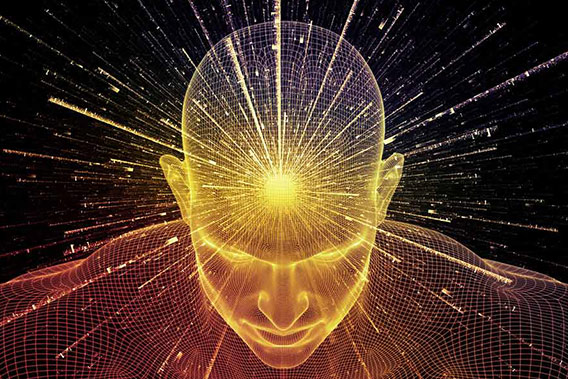“Then God said, ‘Let us make man in our image, after our likeness.’” Genesis 1:26
“One may understand the cosmos but never the ego; the self is more distant than any star” (G.K. Chesterton). There is nothing more complex in all creation than the creature created in God’s image. Add the fallen nature of man in his sin to such complexity, and you understand the claim, “The self is more distant than any star.” The prophet Jeremiah said, “The heart is deceitful above all things and beyond cure. Who can know it?”
Genesis records the generations that proceed from Cain, Adam and Eve’s surviving son. One of Cain’s sons produces children who live in tents and raise livestock. Another was the patriarch of those who play the lyre and pipe. Yet another, the father of those who forge instruments of bronze and iron. Very soon, the diversity of talents, skills, and interests spread throughout the infant human race. But then, Lamech, another son of Cain, boasts of killing a man for wounding him and a young man for striking him, saying if Cain’s punishment for killing Abel is sevenfold, then his is seventy-seven fold. The results of sin are manifest in the utter complexity of minds – minds that can be twisted by evil.
Many minds, despite their fallen state, are relatively rational but complicated by their penchant for sin with a deceptive flight from righteousness. The fact that man is fallen brings another sad result of his sin: mental illness, which extends to disability and a failure to function in life. The present ineffectiveness and mystery of treating mental illness properly has produced an entire homeless population. Others are left vulnerable to committing heinous crimes, sometimes with the belief that “God told me to do it.” The Scriptural truth of these “directives” is that Satan is real and masquerading as an “angel of light.”
The human mind is diverse, difficult to understand by man, remarkably complex, with depths which cannot be fully plumbed. The brain can store millions of bits of information, including memories which cannot always be recollected until or if prompted by some trigger of recall; this is one reason Chesterton points out that “the self is more distant than any star.” The wisdom of Solomon explained, “This only have I found: God created man upright, but they have gone in search of many schemes.”
The complexity of billions of minds, every one unique, paired with the truth that man is fallen creates a ruinous state for the highest element of God’s creation. Though the brilliance of the created human mind has developed amazing inventions of human transportation, communication, medicines, weapons, living spaces, food production, and so much more, the end result is sadly its destruction. Man dies, returns to dust, and takes none of his wealth, inventions, or power to the grave. What is the purpose of it all? Or what is man that God is mindful of him, as the Psalmist asks in Psalm 8?
Is God, the Creator, Sustainer, and Future of all truly mindful of man? Will He redeem what has gone so horribly wrong? Can He make the crooked places straight? Can He heal the illness and destruction of the creature made in His image? This is the whole story of human history set forth in Holy Scripture, of how God has done this in the person of His Son. Will the complexity of man be made simple and beautiful in the refocus of his heart, his grasping of the true purpose of life, knowing why he was created and given such remarkable gifts to the glory of his Creator?
God alone has the ability to search the heart and mind of man, to cover the distance of understanding man’s self, as much as He is well aware of every facet of the entire cosmos. Man is never so complex that he is beyond finding out. God knows all He has made and the true end of those who sit at the height of His Creation. Jeremiah 17:10 says, “I, the Lord, search the heart and examine the mind to reward each person according to their conduct, according to what their deeds deserve.” Vast complexity is made simple and clear in the eyes of God who knows all hearts and minds. To bind your heart and mind to the One who is not blinded by its complexity is the beauty of your salvation. Is it not a grand truth that you can be known, and loved, and can in Him come to know your true self and be fully content with the result because you have been thoroughly redeemed?
“Search me, O God, my heart discern, try me my inmost thought to learn; and lead me, if in sin I stray, to choose the everlasting way.”
(5th verse of Psalm 139, The Psalter, 1912)
Stay Updated
Sign up for our monthly newsletter and weekly devotional











